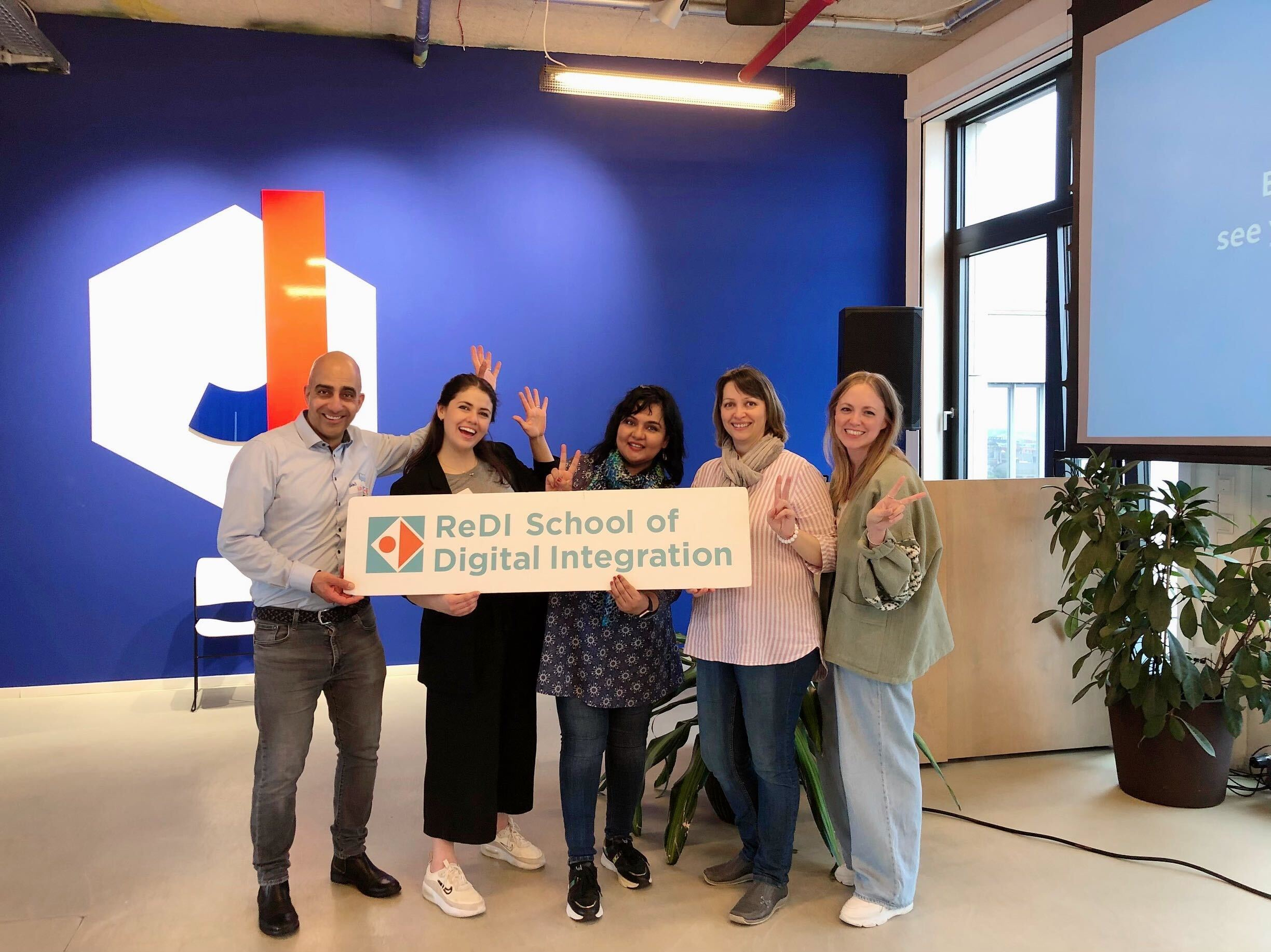Building Bridges Through IT: The ReDI School's Impact on Integration and Opportunity
In the heart of Hamburg's city center, within the modern Brahmsquartier office buildings, a buzz of activity fills the 12th floor. Groups engage in lively conversations—mostly in English—until everyone takes their seats, facing an improvised stage.

Typically, these rooms are used by the Jakala management consultancy. However, on this afternoon in June, nearly 100 people have gathered here for DemoDay, an event hosted by the ReDI School of Digital Integration. Seven men and women are presenting their final projects. None of them have been in Hamburg for long, having recently arrived from Ukraine, Sri Lanka, Egypt, or Syria. From March to June 2024, they attended courses at the ReDI School, learning HTML, JavaScript, UX/UI Design, Python, or Machine Learning at various levels—basic, intermediate, or advanced—based on their prior knowledge. The courses were taught by volunteers from Hamburg-based companies such as Otto, Accenture, Microsoft, and CGI.
The involvement of local companies is a crucial aspect of the ReDI School of Digital Integration, founded by Ashoka Fellow Anne Kjaer Bathel in 2015 during a significant influx of refugees to Germany. Her idea for a non-profit, free tech school addresses multiple challenges simultaneously: the IT skills taught enable refugees and others with limited access to digital education to find work more quickly; public administration can save on "integration costs"; and companies can swiftly find the skilled workers they need while enhancing their attractiveness as employers by offering meaningful engagement opportunities to their employees.
Additionally, the ReDI School specifically targets women to increase their representation in IT professions. The concept has proven successful, with the number of participants growing from 219 in 2016 to 8,011 in 2023.
More than half of the graduates have since secured permanent jobs, predominantly in the IT industry. Beyond the founding location in Berlin, the ReDI School now has locations in Munich, North Rhine-Westphalia, Denmark, and, since 2022, Hamburg—thanks to the support of the Authority for Economic Affairs and Innovation and the Authority for Labor, Health, Social Affairs, Family, and Integration.
One of the participants in the inaugural year of the Hamburg location is Ayesha Khan. Today, she volunteers at DemoDay—a cause close to her heart. Listening to her story reveals the profound impact the ReDI School has on its participants. In 2016, Ayesha Khan moved from Shanghai to Hamburg for her husband’s job. Originally from Pakistan, she had studied management, worked in top management consulting firms, and even founded a company in Shanghai. Yet, upon arriving in Hamburg, she had to start over: "The language, culture, the conditions—everything was completely different. "English didn't get me very far here, and my degree recognition didn't work out either. To be honest, I didn't expect that."
To establish herself, she took language courses and pursued a master's degree in management. In 2022, a careers advisor for migrants recommended free courses at the ReDI School in Hamburg, an offer that immediately appealed to the mother of two:
"I had always been interested in IT topics. But in Pakistan, that’s considered a boy’s and man’s field. My father didn’t take notice of my interest in this career path."

Ayesha seized the opportunity to explore her interest in IT in Germany. She completed five semesters in web development and UI/UX design, along with two additional courses in cyber security. Twice a week, always in the evening, Ayesha met with her fellow students and their instructor for online seminars.
After each semester, she presented her final projects at DemoDay. While some aspects were more enjoyable than others, Ayesha’s experience at the ReDI School goes beyond acquiring IT knowledge. A strong network forms among the students, and participants gain valuable soft skills in addition to digital expertise.
After a few different roles, she now works in the Corporate Social Responsibility department at Capgemini, a ReDI School partner. One of her first initiatives there was to further integrate the company with the ReDI School, as she wants many more people to benefit from the opportunity—especially women:
"Women like me, with a migration and refugee background, who come from completely different cultures, are often shy. That’s how we’re socialized. Here, there’s much more freedom. Learning to use it and understanding that we too can learn and develop is something the ReDI School teaches."
She adds, "I have learned so much since I’ve been in Germany. I want to pass that on to other women. I don’t want them to feel demotivated but to trust that they too can achieve what I have achieved."
This goal aligns perfectly with the ReDI School's mission. Almost all of its locations offer special courses for women—either online or, if necessary, with parallel childcare. This approach has been successful: in the first semester of 2024 in Hamburg, for the first time, there were 62% more women than men among the students. This statistic contrasts sharply with the broader German IT sector, highlighting the significant potential that the ReDI School is unlocking.